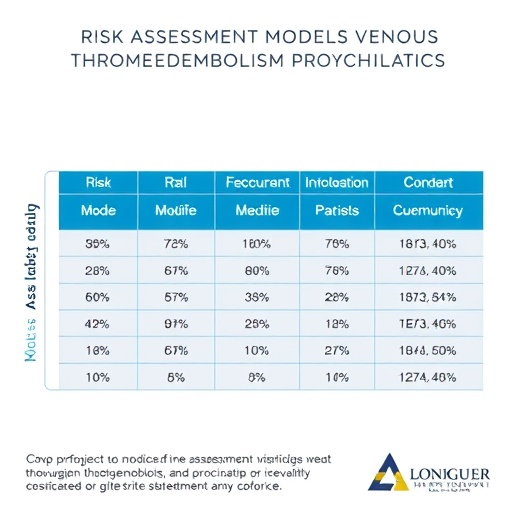PROTECT YOUR DNA WITH QUANTUM TECHNOLOGY
Orgo-Life the new way to the future Advertising by AdpathwayCognitive workload assessment is increasingly recognized as a critical factor in the realm of safety management, particularly within healthcare settings where the stakes are undeniably high. A recent in-depth study conducted by Feng, Huang, and Peng has provided valuable insights into this complex subject, aiming to illuminate the integral relationship between cognitive workloads and the effective management of safety protocols. As healthcare environments demand rigorous attention to detail while simultaneously managing a plethora of tasks, understanding cognitive workload becomes paramount.
The researchers embarked on a comprehensive review that collated and analyzed various methodologies for assessing cognitive workload. They highlighted that cognitive workload refers not only to the mental effort required to perform tasks but also encompasses the overall cognitive demand associated with various operational roles. By delving into existing literature and synthesizing findings, Feng and colleagues have provided a vital educational resource for healthcare professionals and safety management practitioners alike.
One significant takeaway from the study is the necessity of implementing reliable assessment tools that can accurately gauge cognitive workload. The researchers examined both subjective and objective measures, emphasizing that subjective assessments, such as self-reported workloads, often lack the precision needed for effective application in safety management. In contrast, objective assessments, including physiological measures like heart rate variability and eye tracking, promise a more detailed perspective on cognitive strain during task execution.
Moreover, the study discusses the implications of cognitive workload variability in high-pressure environments such as surgical theaters and emergency departments. The authors argue that excess cognitive strain can lead to detrimental outcomes, including compromised patient safety, increased error rates, and a heightened risk of burnout among healthcare staff. Thus, the need for a framework that balances cognitive workload and operational demands emerges as a pressing concern.
Another pivotal aspect of the research is its exploration of technology-assisted interventions aimed at mitigating cognitive workload. By integrating artificial intelligence and machine learning, healthcare organizations could potentially streamline processes, thereby minimizing unnecessary cognitive load on employees. The study emphasizes the urgency of leveraging such technologies, especially when considering future challenges posed by an evolving healthcare landscape and a looming shortage of skilled workers.
Feng and colleagues also address the importance of training and education in enhancing awareness of cognitive workload. A tailored curriculum geared towards cognitive ergonomics could empower healthcare professionals to recognize their own cognitive limitations and adapt their workflows accordingly. By fostering a culture of awareness, organizations stand to improve both employee well-being and patient outcomes.
Importantly, the researchers advocate for future research to build upon their foundational work in cognitive workload assessment. They underscore the necessity for longitudinal studies that investigate the long-term effects of cognitive workload management on both staff performance and patient safety metrics. Such studies would contribute to a richer understanding of cognitive demands and facilitate the development of best practices that could be generalized across various healthcare settings.
In concluding their review, Feng, Huang, and Peng reiterate the critical need for a multidisciplinary approach to addressing cognitive workload within safety management. They call for collaboration among clinicians, psychologists, safety managers, and technology developers to create innovative and effective solutions. The continuous dialogue across these fields would ensure that safety management practices are not only scientifically sound but also adaptable to the evolving nature of healthcare.
The study represents a timely and necessary addition to the field, providing an evidence-based foundation for practitioners aiming to enhance safety protocols through a better understanding of cognitive workload. As healthcare continues to contend with rising demands and complexities, this integrative review stands out, offering clear and actionable insights for fostering a safer and more responsive healthcare environment.
Considered a vital reference for future research endeavors, this study by Feng and colleagues equips healthcare professionals with a nuanced understanding of cognitive workload assessment. Their commitment to advancing safety management through rigorous scholarly examination highlights the vital intersection of cognitive science and operational diligence in health settings.
As the healthcare industry moves forward, embracing the principles set forth in this review could serve not only to protect staff well-being but also significantly enhance patient safety measures. The findings make a compelling case for the continued prioritization of cognitive workload as a fundamental component of effective safety management strategies.
The relevance of this research is further underscored by ongoing developments in healthcare technology, which present both challenges and opportunities in terms of cognitive workload. Therefore, organizations that take heed of these insights are well-positioned to navigate the complex terrain of modern healthcare, ultimately reinforcing their commitment to excellence and safety.
In a world where the need for safety in healthcare cannot be overstated, this integrative review offers a crucial lens through which practitioners can view and address cognitive workloads, fostering a more efficient and safer working environment for all stakeholders involved.
Subject of Research: Cognitive workload assessment for safety management.
Article Title: An integrative review of cognitive workload assessment for safety management.
Article References:
Feng, T., Huang, L., Peng, X. et al. An integrative review of cognitive workload assessment for safety management.
BMC Nurs 24, 1363 (2025). https://doi.org/10.1186/s12912-025-03987-w
Image Credits: AI Generated
DOI: https://doi.org/10.1186/s12912-025-03987-w
Keywords: Cognitive workload, safety management, healthcare, assessment methods, technology interventions.
Tags: cognitive workload assessment in healthcareevaluating mental effort in taskshealthcare professional training on workloadimplications of cognitive workload on safetyimportance of cognitive demand in healthcareinsights from cognitive workload researchmethodologies for cognitive workload evaluationoperational roles in healthcare environmentsreliable assessment tools for cognitive workloadsafety management practicessafety protocol effectivenesssubjective vs objective workload measures


 9 hours ago
5
9 hours ago
5





















 English (US) ·
English (US) ·  French (CA) ·
French (CA) ·